48 Hours in Vilnius, Lithuania
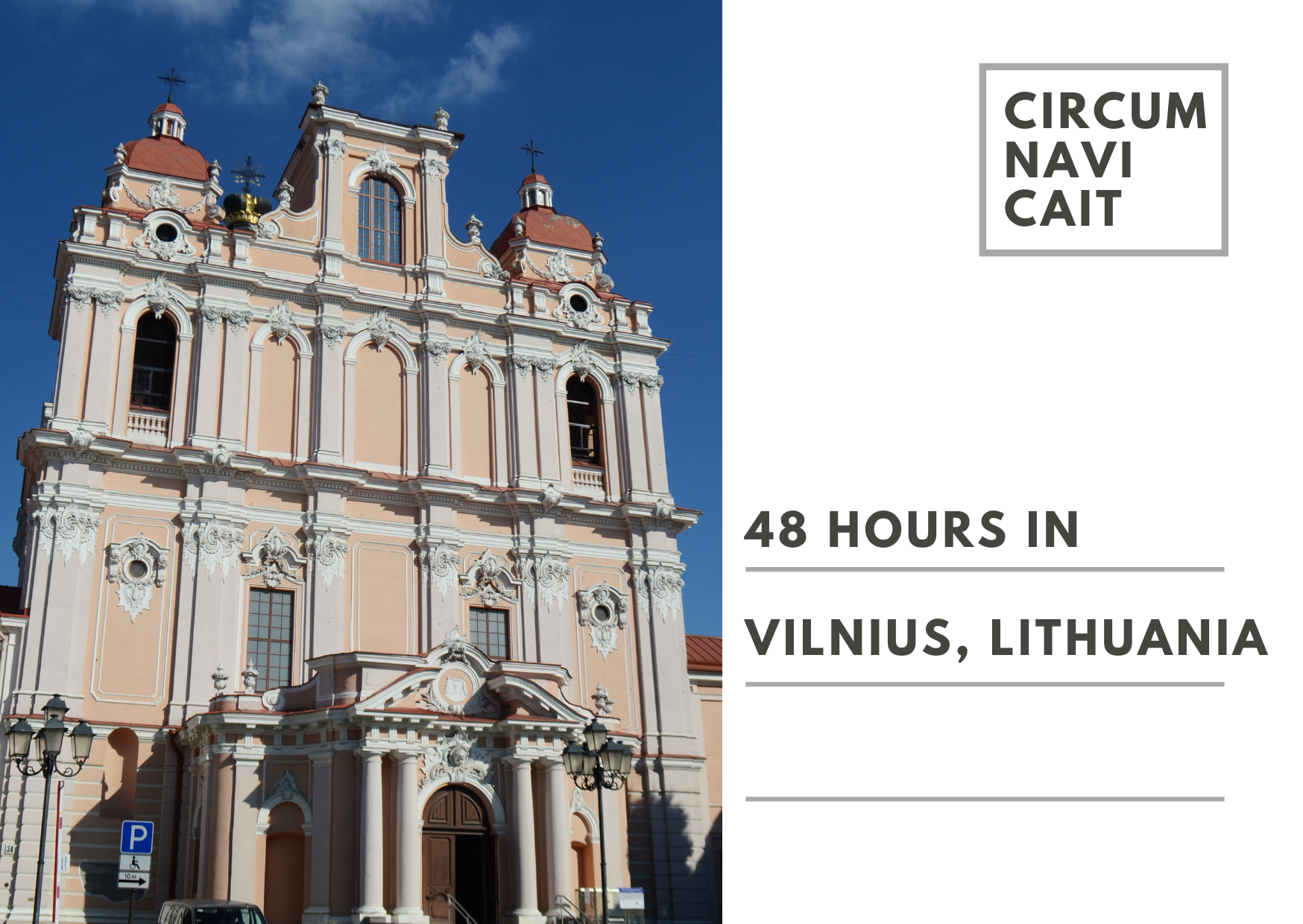
Ah, Lithuania. Leading up to my trip, people often wondered why the heck I was going to Lithuania. Even when I arrived, locals and Europeans visiting the city asked me the same thing. Why Lithuania?
While studying abroad in Spain and Italy, I traveled quite a lot through Europe – to much of Western Europe and even to the Balkans. So, this go around, I was looking for somewhere new. After a careful review of COVID-19 entry restrictions in Europe, costs, and weather, I landed on the Baltics.
So the answer to “why Lithuania?” is that it was the perfect jumping off point for a 10 days trip through the Baltics: Lithuania, Latvia, and Estonia.
Here’s a look at my 48 hours in Vilnius and my tips and tricks for travel to the Lithuanian capital.
Vilnius Basics
Currency
Lithuania is part of the European Union, and uses the Euro. 1 Euro currently equals about $1.15 USD.
Visa Requirements
As part of the European Union’s Schengen Zone, citizens of the US and many other countries can visit visa free. However, be sure to check updated COVID restrictions.
Language
Lithuanian, but English is widely spoken in Vilnius.
Basic phrases:
Hello / Hi – Labas (lah-bahs)
Good Morning – Labas Rytas (lah-bahs ree-tahs)
Good Evening – Labas Vakaras (lah-bahs vah-kah-rahs)
Thank You – Ačiū (ah-choo)
Weather
In the summer, Vilnius can be pretty warm – when I was there in early/mid September, it was surprisingly in the 80s. Even the locals were surprised at how warm it was, sharing that typically September is pretty chilly. In the warmer months, I’d still recommend bringing a jacket, and in the winter you’d better bring a lot more.
Things to Do
Go on a Free Walking Tour
On my first morning in Vilnius, I took a free walking tour of the Old Town with Vilnius Free Walking Tours. The free tour meets daily at 10:30 am in Cathedral Square, the main square of the city. When I walked up to the main square, it was packed full of people waving Lithuanian flags. I managed to find my guide, Guoda, with her red umbrella in the sea of people. It turned out that the crowd was an anti-vaxxer protest, and we learned about the current political and social climate from Guoda along with Lithuanian history and culture.
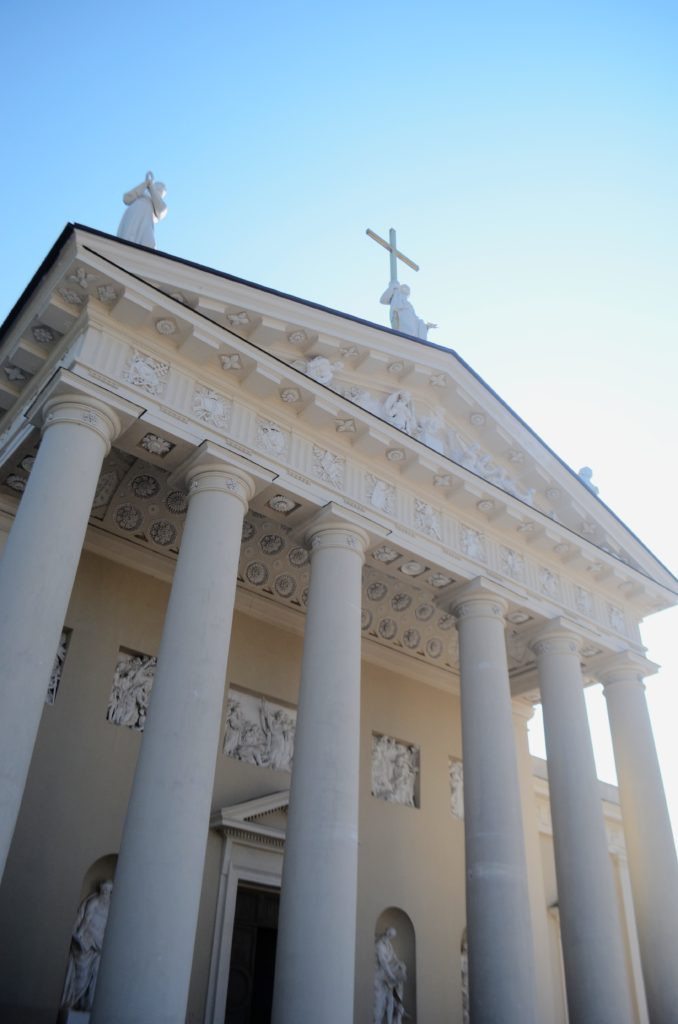
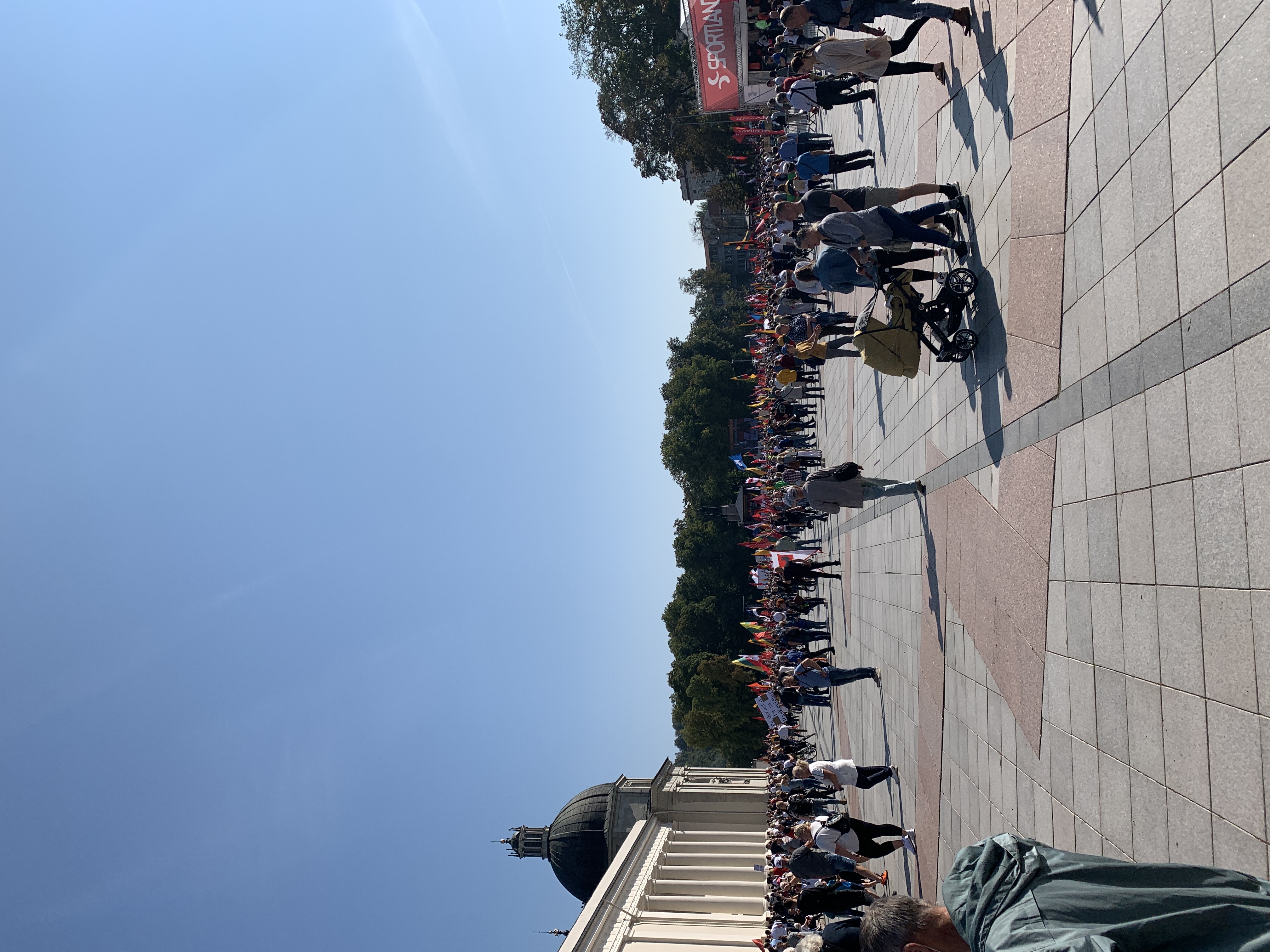
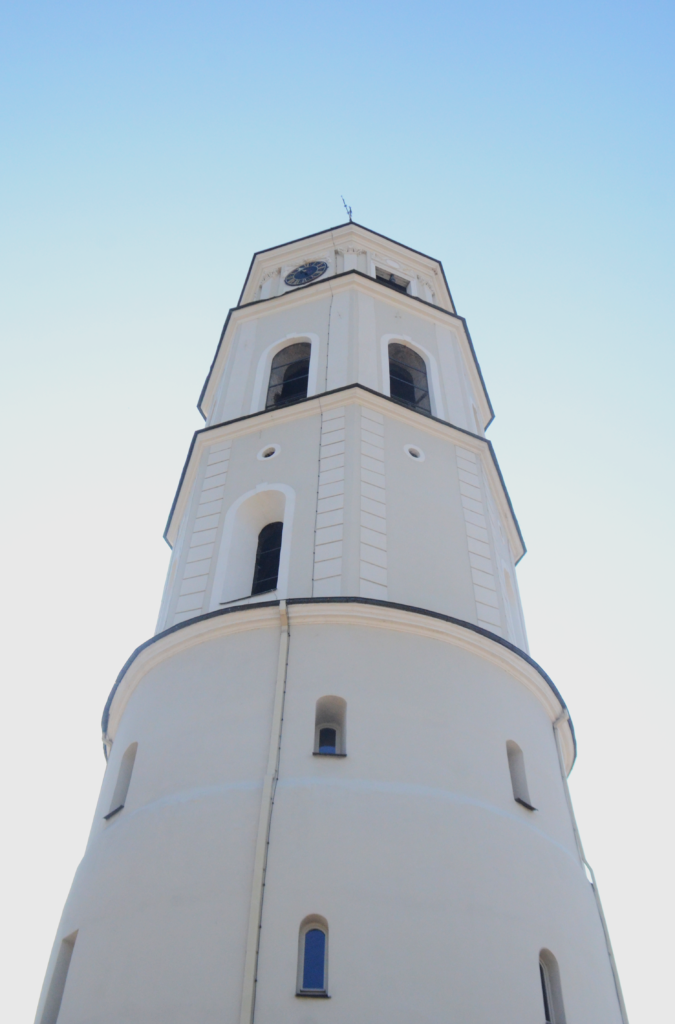
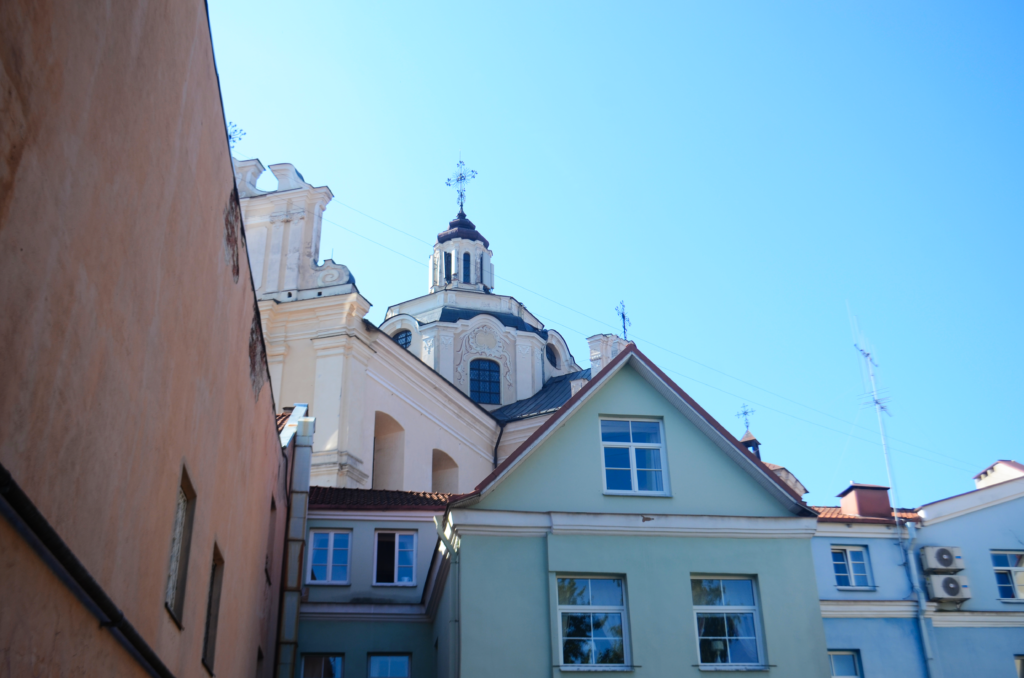
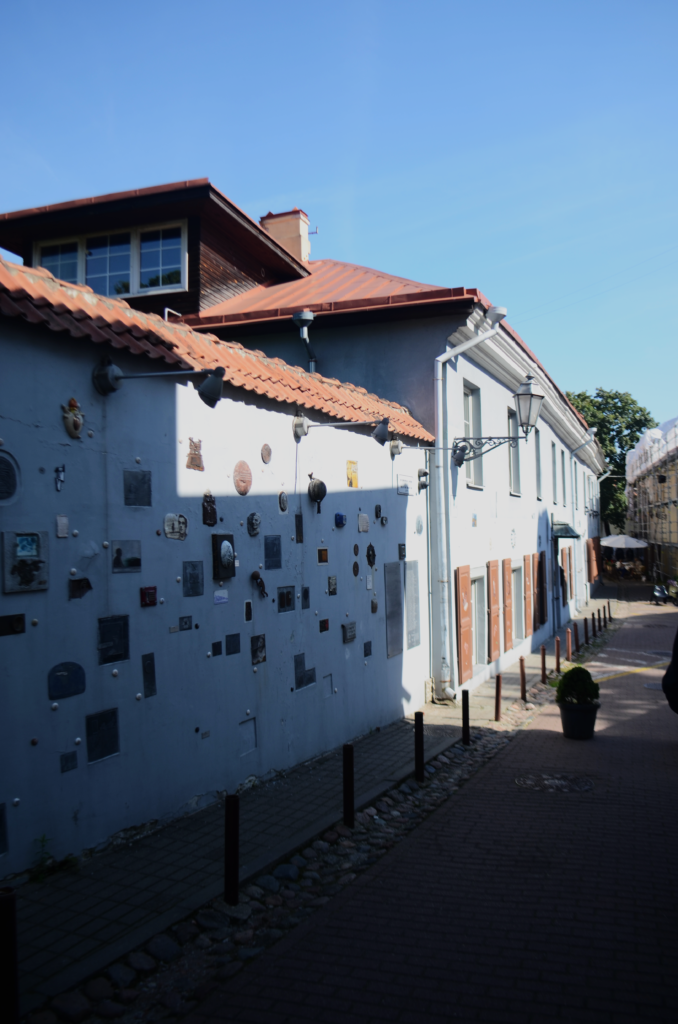
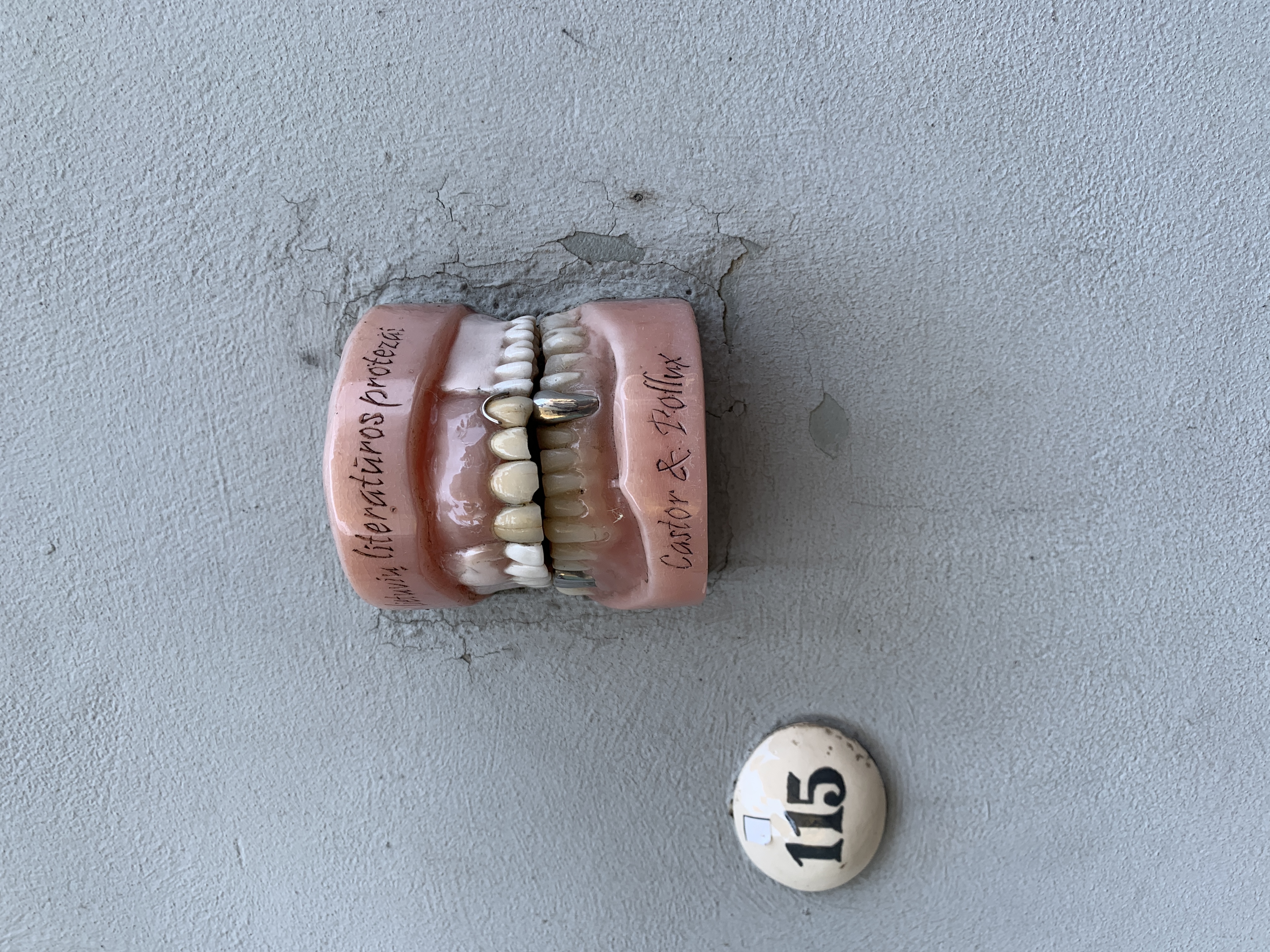
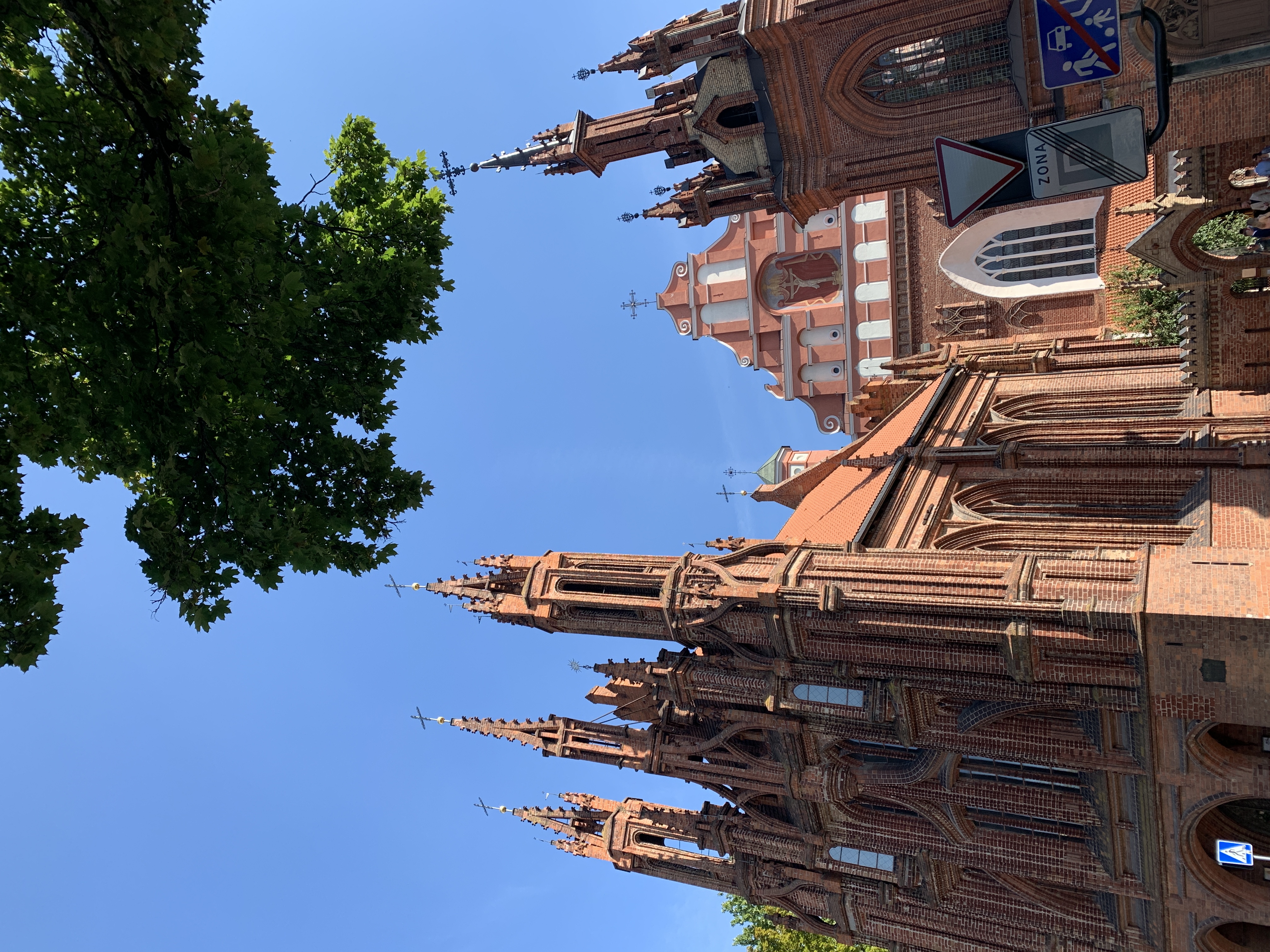
On my second day in Vilnius, I went on the “Undiscovered Free Tour” of Vilnius. It meets daily at 1:30 pm in the main square, and takes visitors outside of the Old Town to the modern city center and the area of Šnipiškės, which has old, wooden architecture just blocks from the city’s skyscrapers. Typically, the group takes public transport out of the Old Town, but due to the pandemic we walked to the areas the tour focuses on.
I enjoyed both tours, but I would recommend just doing the tour of the Old Town.
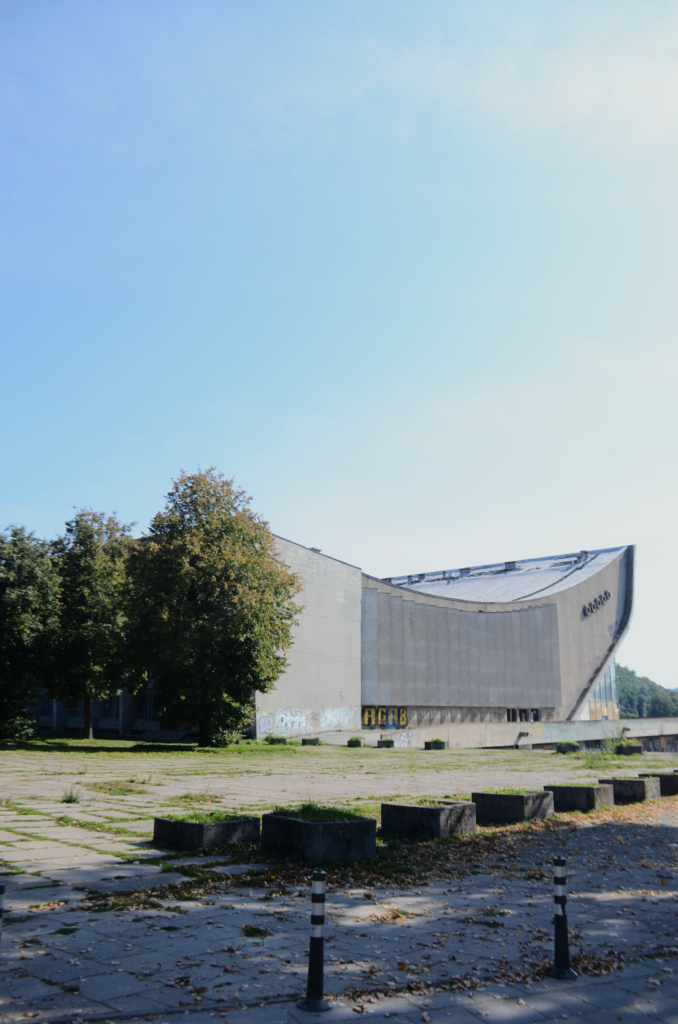
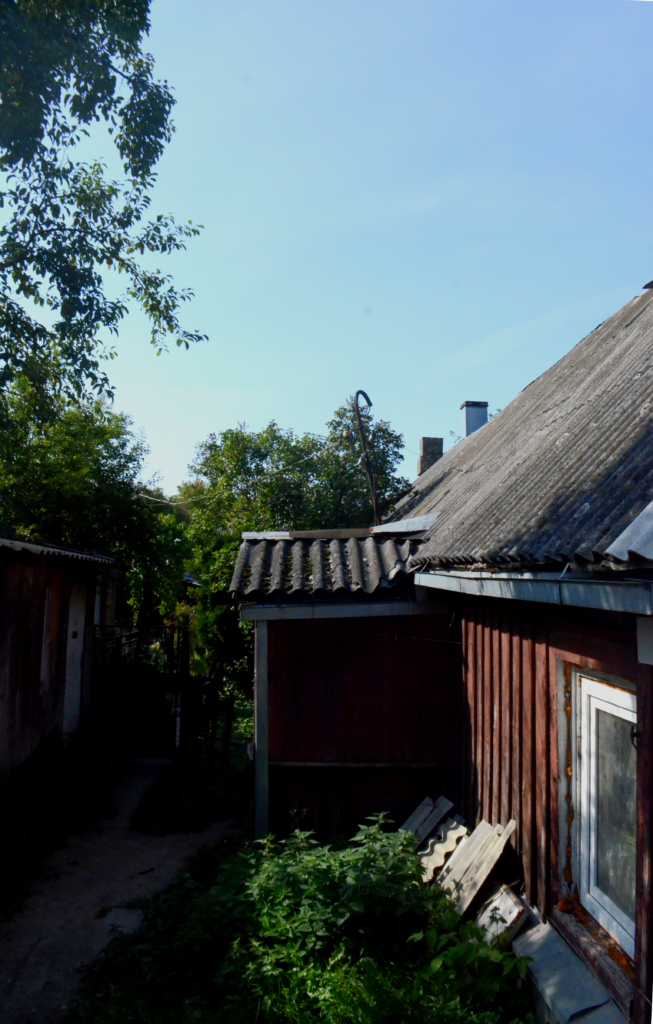

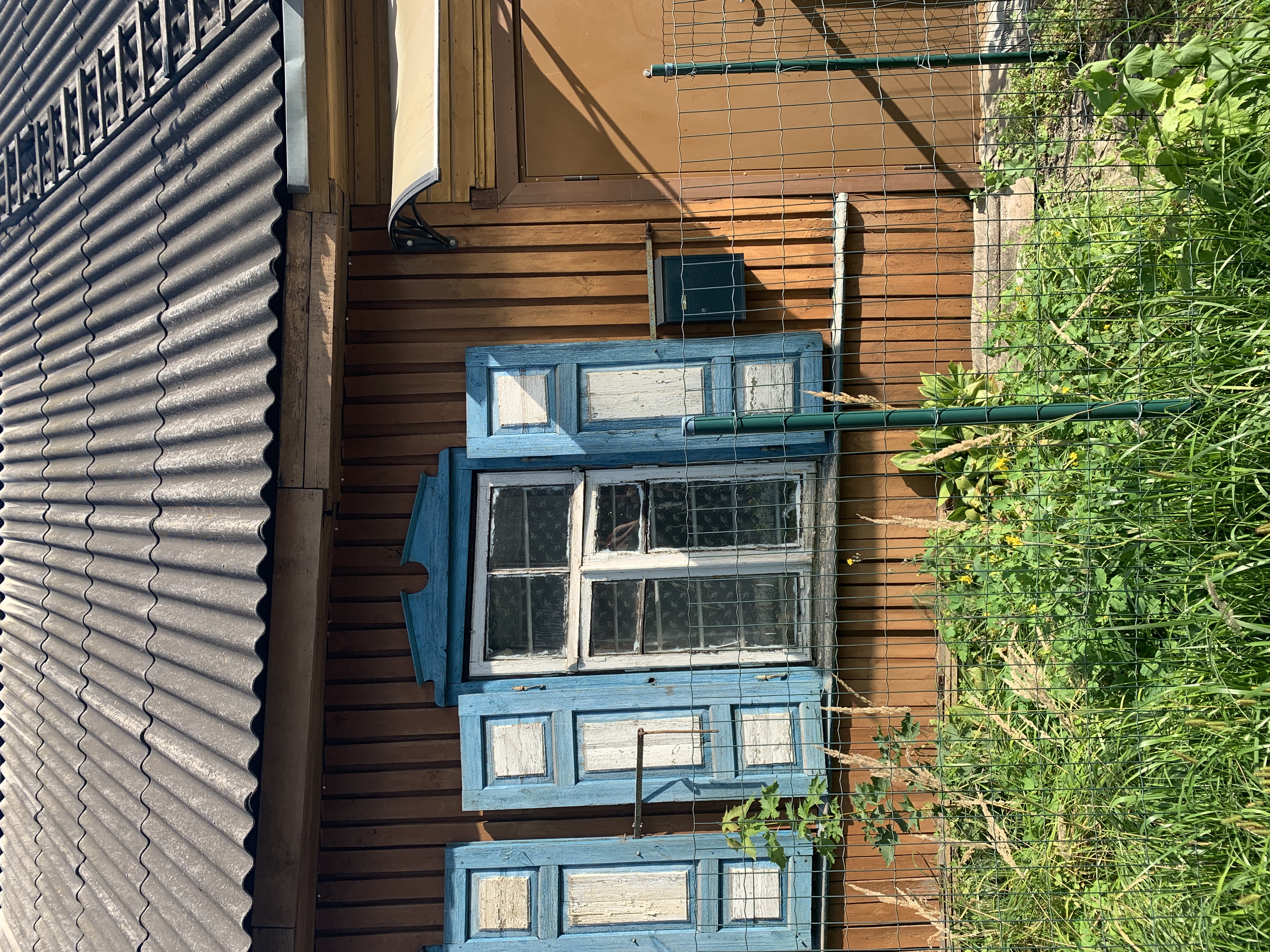
See Vilnius from Above at the 3 Crosses
Above the city is a hill with 3 crosses built on top. The hill provides the best views of the city, and bonus points if you go up right before sunset. There are quite a lot of stairs, especially if you’re as jet-lagged as I was, but it’s worth the climb.
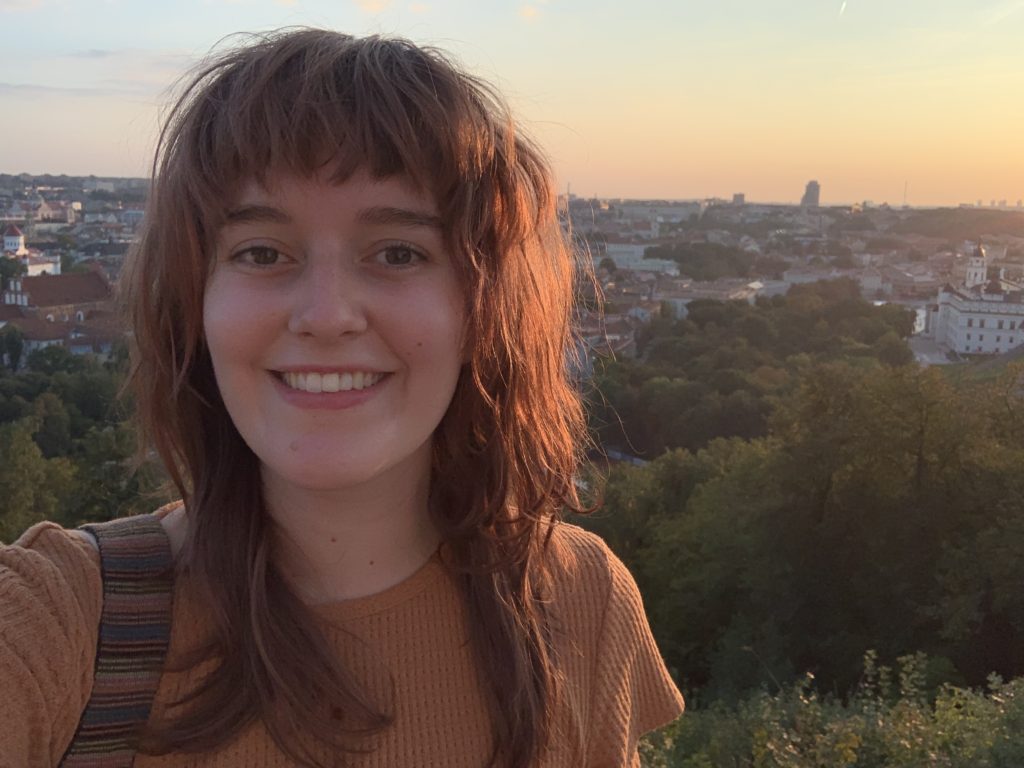
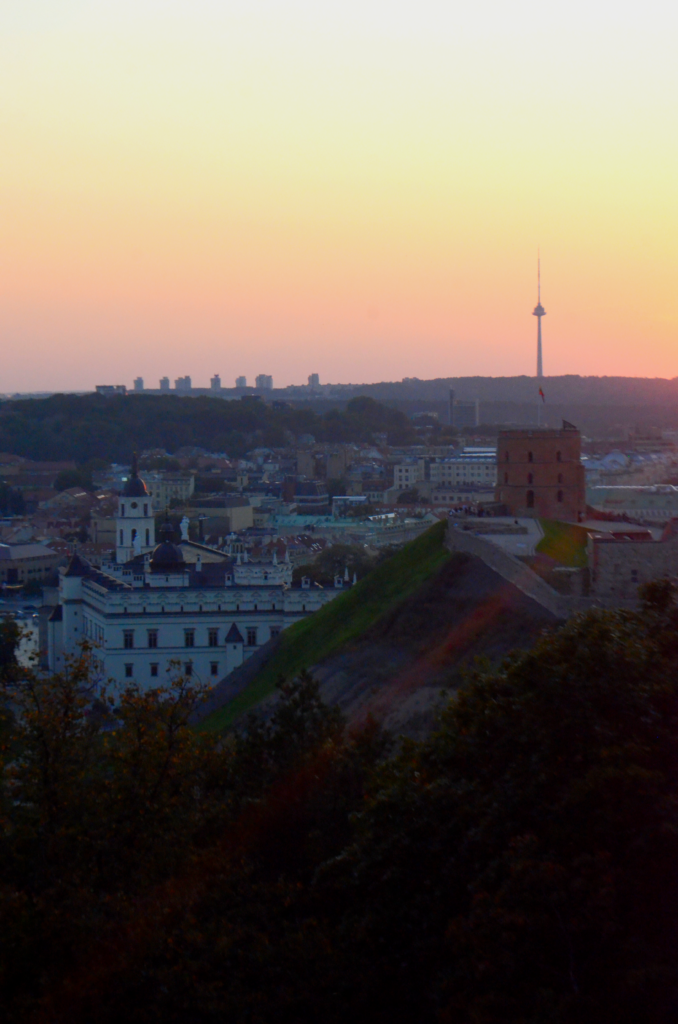
Eat Lots and Lots of Lithuanian Food
Lithuanian food is hearty and warm, perfect for a cool night. I had fantastic food throughout my short time in Vilnius thanks to blog posts and recommendations from one of my walking tour guides. I can highly recommend the following restaurants and dishes.
Pirmas Blynas
Pirmas Blynas is a pancake restaurant located in an old church that has been renovated and divided into a restaurant, a store, and a new, smaller church. What makes this restaurant special besides the delicious food is that their servers are all individuals with mental disabilities. My walking tour guide shared that people with disabilities in Lithuania are often hidden away, and that this restaurant gives Lithuanians the important opportunity to interact with those with mental disabilities.
I ate lunch at Pirmas Blynas and had an incredible pancake with salmon, dollops of cream cheese, spinach, and balsamic vinegar. The dish was quite large and only cost €6.95.
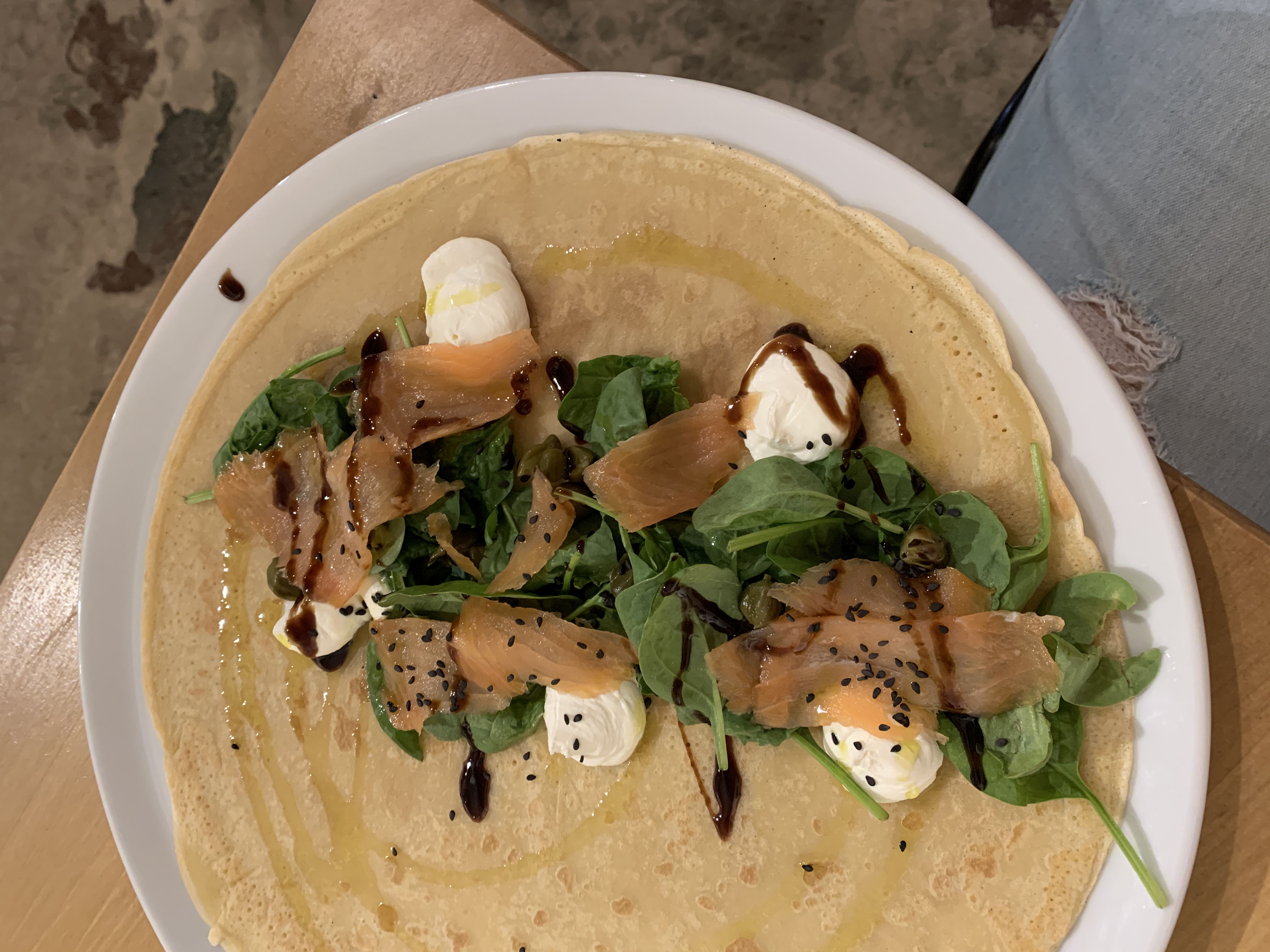
Etno Dvaras
Etno Dvaras came highly recommended in several other blog posts and on Trip Advisor for traditional Lithuanian food. It is located right near the main city square and has a cozy and almost medieval interior. I had a delicious wild mushroom soup served in a rye bread bowl. Rye bread is a staple in the Baltics and is featured on many menus. I also tried ‘cepelinai’, traditional Lithuanian potato dumplings. The two dumplings were absolutely huge, each nearly the size of a full potato. They came stuffed with meat and served with a cream, garlic, and bacon sauce, and they were very, very good.
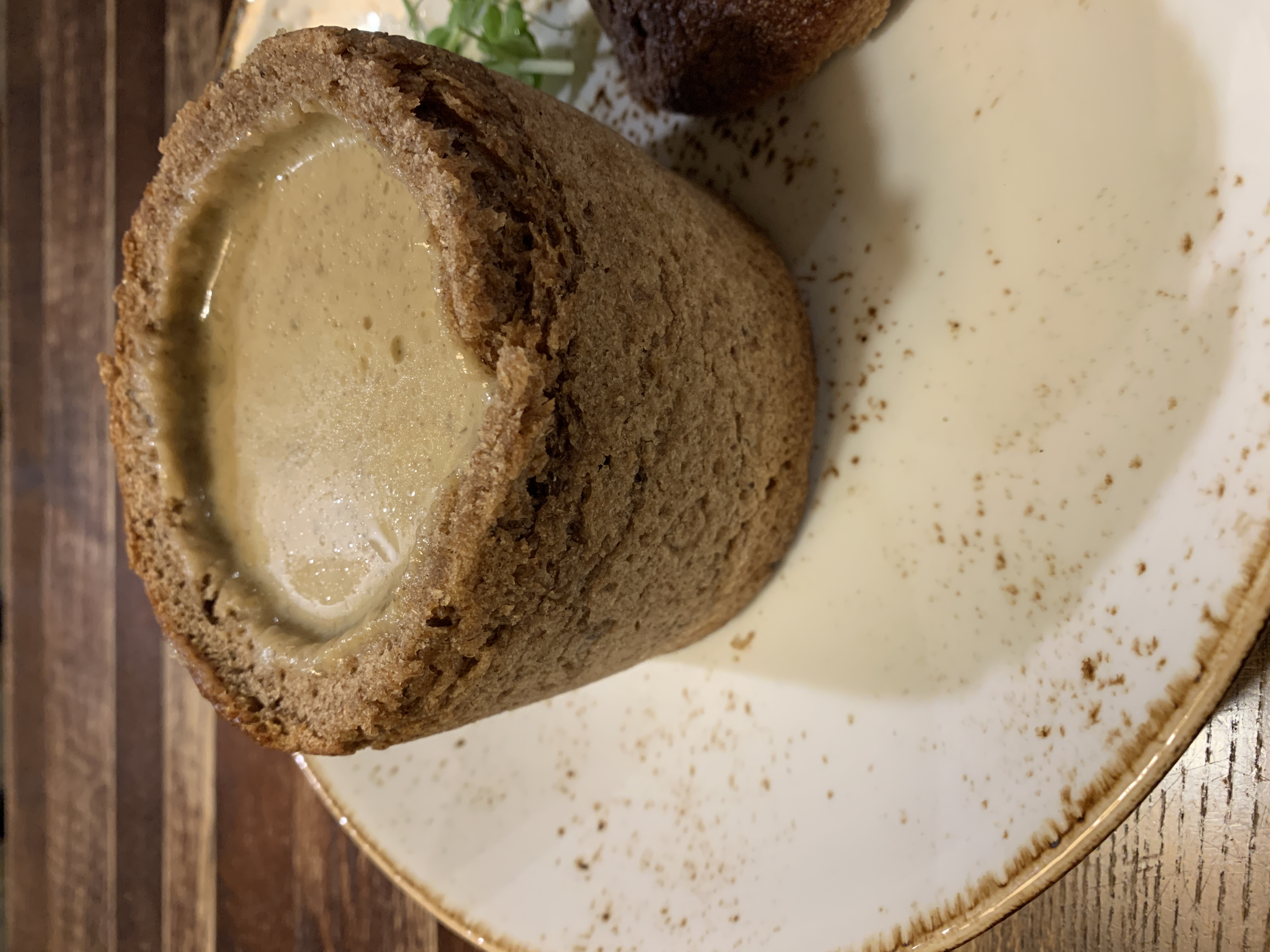

Beigelistai
I read somewhere that Lithuanians might have been the ones to invent bagels, and I may have been convinced of this by the excellent bagel I had at Beigelistai. This bagel shop and cafe has two locations, one in the Old Town and one out in Hales Market. At the Hales Market location, I had a great bagel with cream cheese and a perfect chai latte. I highly recommend grabbing a bagel or two from here for breakfast at least once.
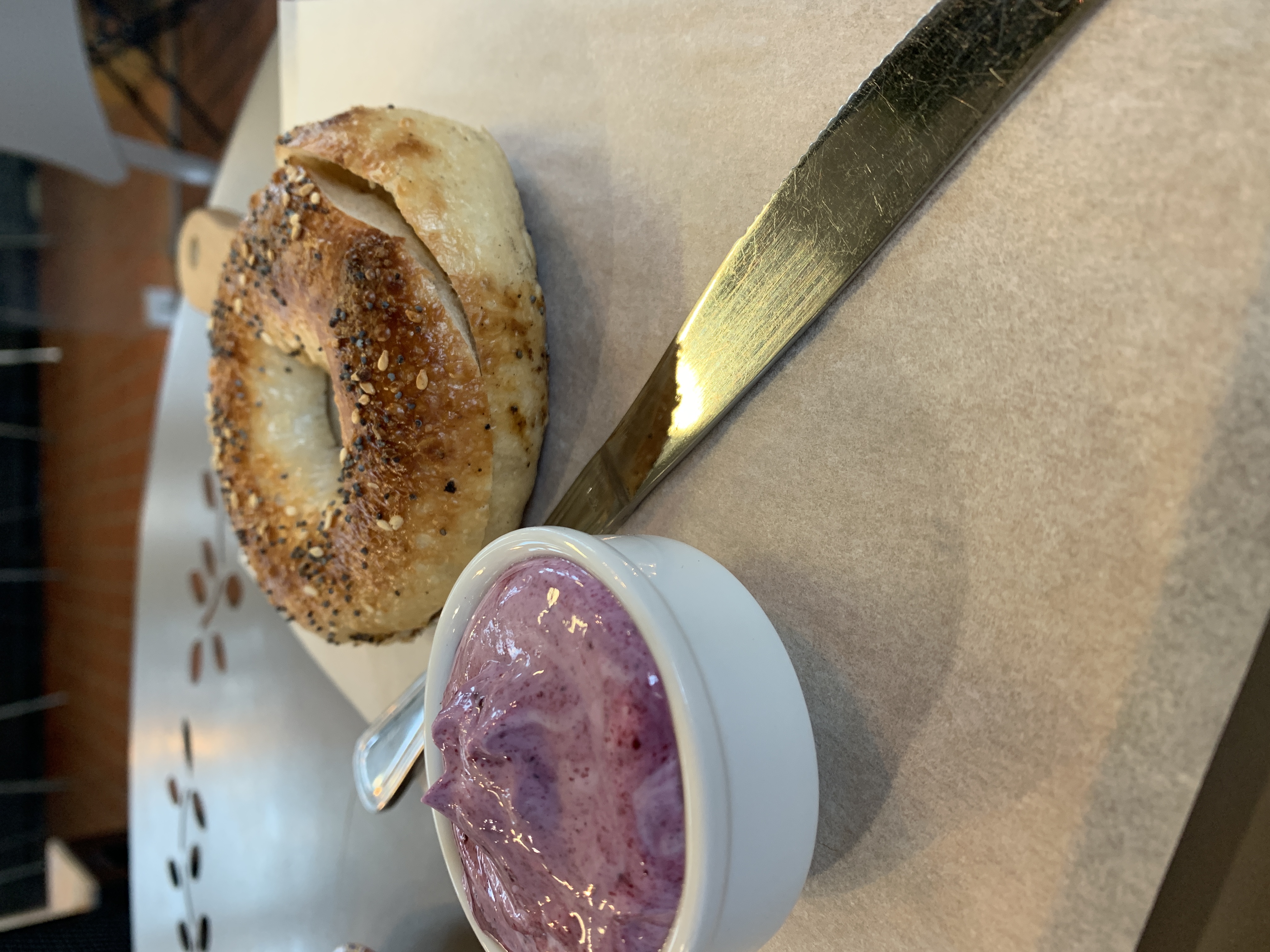
Šnekutis
Another great spot for traditional Lithuanian food, Šnekutis is a bar and restaurant located in the Old Town of Vilnius. I sat outside and enjoyed a beetroot soup and cheese curd dumplings that were delightfully reminiscent of pierogies.
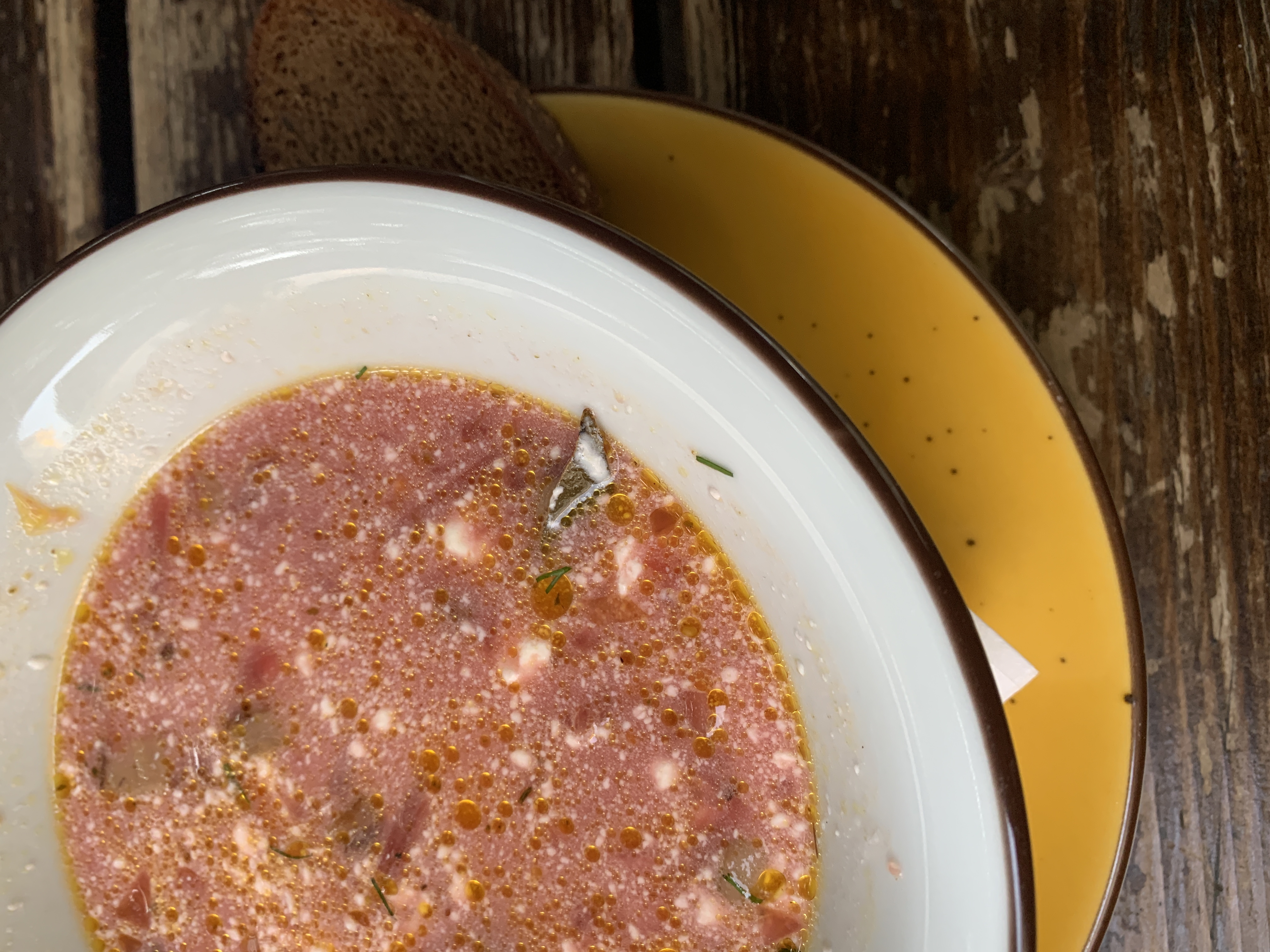
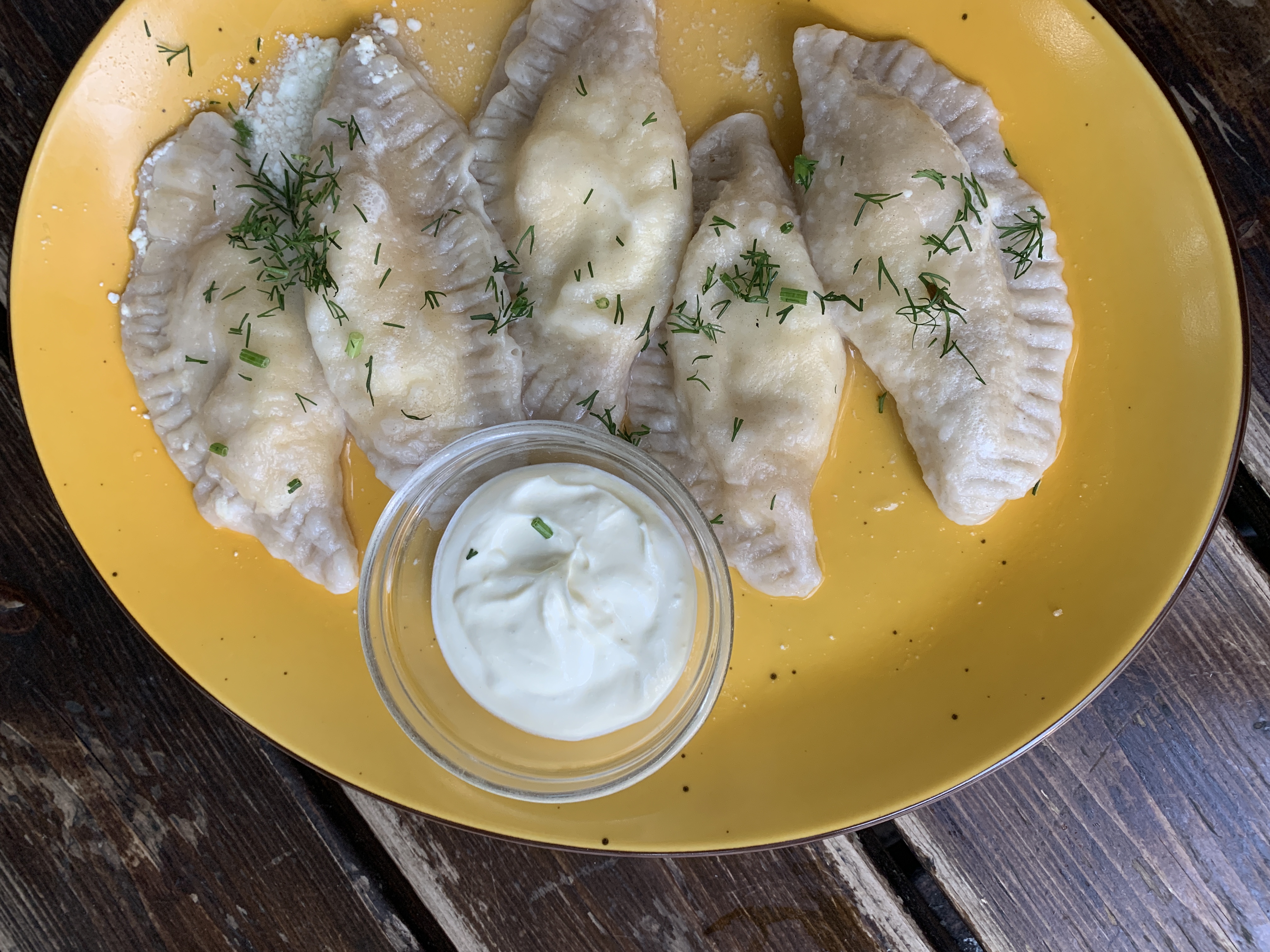
Walk Around the Užupis Republic
Located within Vilnius is the Užupis Republic, an ‘independent’ republic with its own constitution and government. Founded in the 90s by artists and hippies, the Užupis Republic is a trendy area of Vilnius complete with street art and galleries. It is an interesting area to walk around and admire the art, read over the constitution, and stroll along the river.
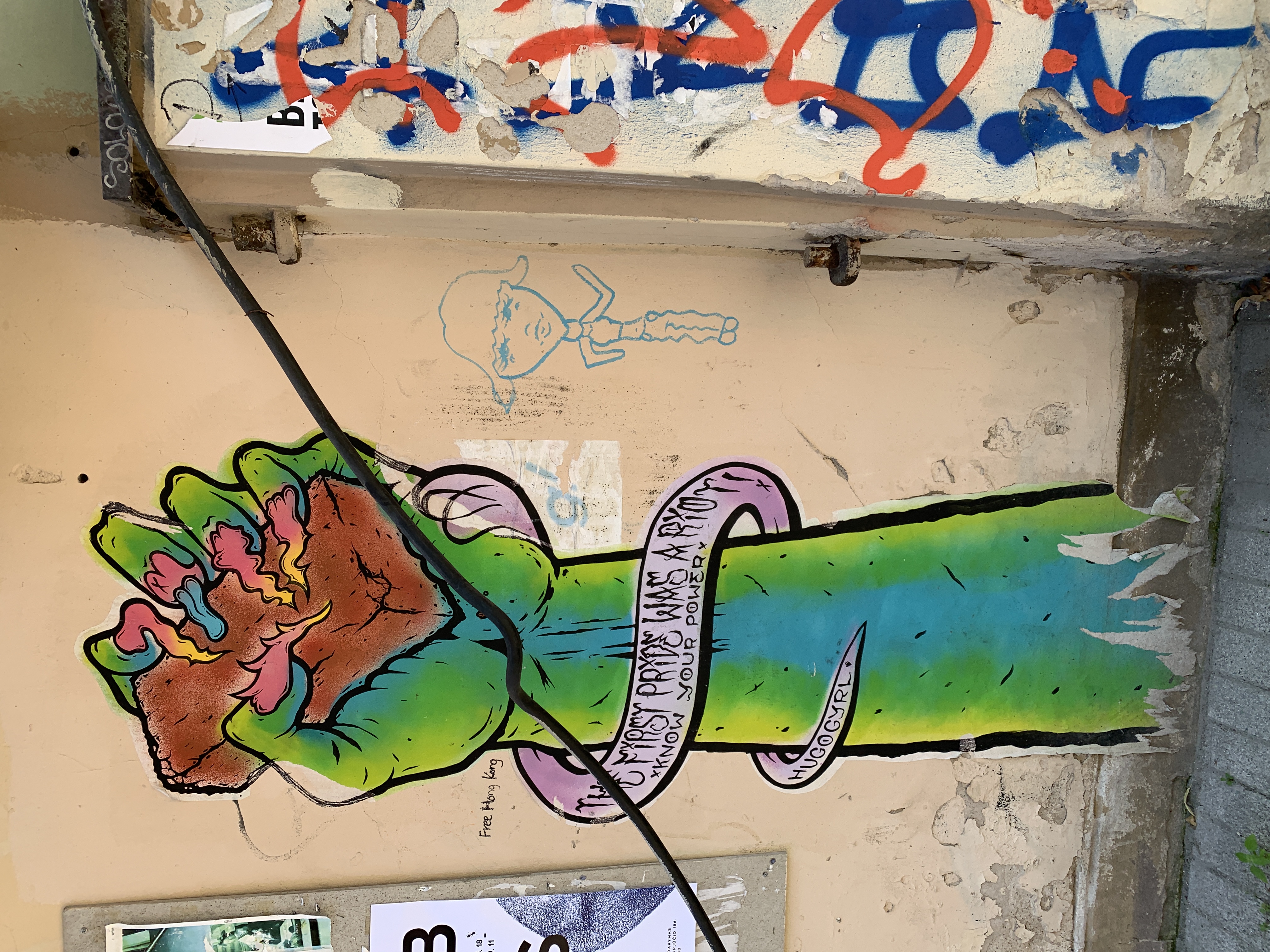
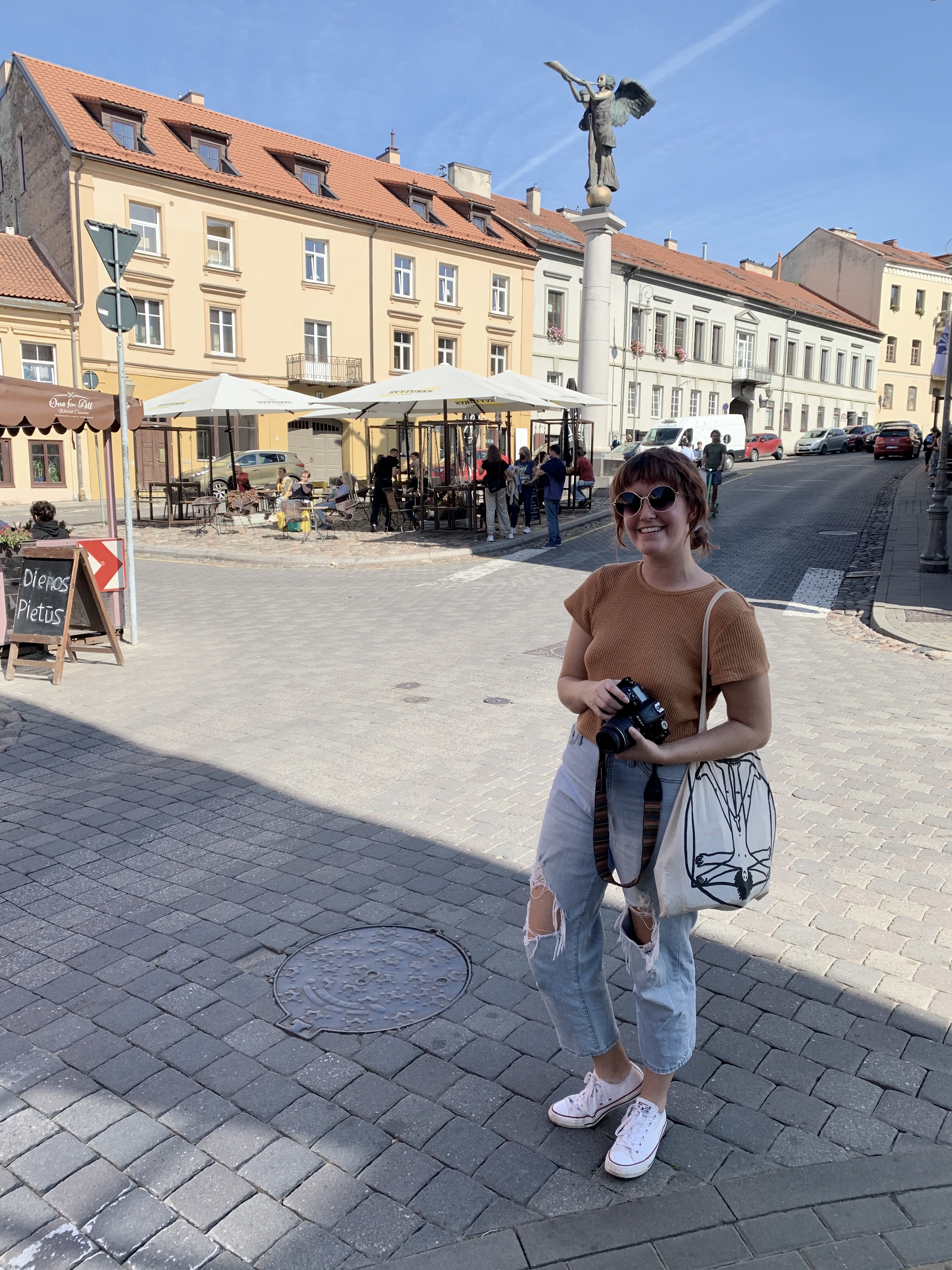
Vilnius was a surprising delight, and makes a great city break from other European cities, or as the jumping off point for a longer Baltics trip. I now know that I can name several lovely reasons when asked the question “why Lithuania?”